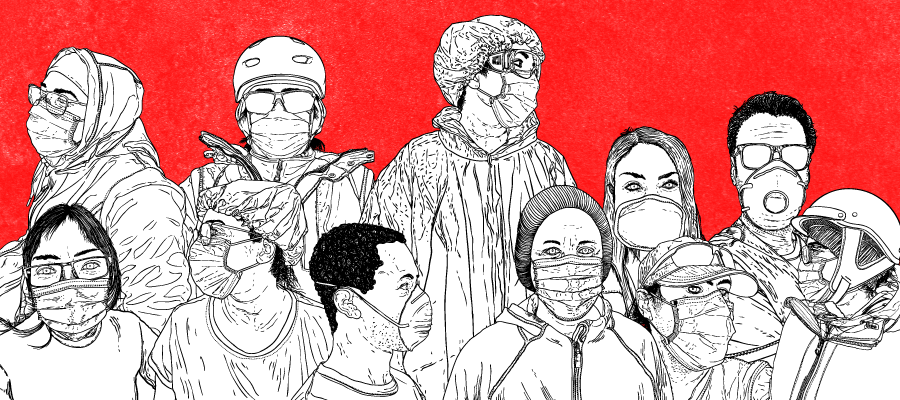Will BC enact a robust paid sick days plan, or will corporate power derail it?

British Columbians are on the cusp of winning a meaningful right to paid sick days—if the powerful corporate lobby doesn’t get its way.
Paid sick days are common sense and already a right of workers in many advanced democracies around the world. The idea is simple. If you’re sick, you stay home and you get paid by your employer as usual. This means not only taking care of yourself, but also avoiding the spread of illness to co-workers, their families and the community—an approach that was always logical and that the pandemic has turned into a downright no-brainer.
In short, no worker should be forced to make an impossible choice between maintaining their income to make ends meet and putting everyone at risk by going to work sick.
The future of paid sick days is being debated after BC implemented a temporary policy in the spring at the height of the third wave. At the time, the government committed to bring in a permanent right starting this coming January, with the details still to be decided. The temporary plan mandated a paltry three paid sick days—and only for absences relating to COVID-19.
At minimum, the permanent plan should include 10 paid days per year as a basic right of employment and paid for by employers.
At minimum, the permanent plan should include 10 paid days per year as a basic right of employment (i.e., enshrined under provincial employment standards law) and paid for by employers. Recent polling shows massive public support for this approach, which is backed by 86% of British Columbians as well as groups like the BC Employment Standards Coalition and the BC Federation of Labour.
This approach would be in line with other advanced democracies such as New Zealand and Australia where workers have a right to 10 employer-paid sick days. It would still fall short of the stronger protections in countries like Sweden (14 days) and Germany (30 days). Even 12 US states—including Washington, Oregon and California—mandate paid sick days.
Canada has long been a laggard on this front, but both the federal NDP and Liberals have now promised 10 employer-paid sick days for all workers in federally regulated industries (up from the current three days) if they form government. There is no reason for BC to enact any less for the large majority of workers who fall under provincial employment standards law.
Most people don’t currently have access to paid sick days at all. Low-wage workers are the worst off: nearly 90% of British Columbians with incomes below $30,000 have no paid sick days. With women making up the majority of workers in these low-wage jobs, paid sick days are also very much a feminist issue as my colleague Iglika Ivanova has shown.
Given the overwhelming public support for a right to paid sick days, why has the BC government been so stingy in its policy even in the midst of a global pandemic?
As I wrote in the spring, it’s about power. From the beginning of the pandemic, corporate lobby groups foresaw that permanent, legislated paid sick days as a right of employment might be coming, and have been lobbying hard against it ever since. They appear to have hoped that by backing a temporary federal program, paid for by taxpayers instead of employers, they could forestall permanent paid sick days under employment standards law.
To be clear, these lobby groups are not just advocating on behalf of mom and pop small businesses devastated by pandemic. Most low wage workers—who are disproportionately women, people of colour, and young—work for large corporations.
You can bet that large corporate employers and their lobby groups have been working hard behind the scenes to limit the number of paid sick days BC ultimately legislates, and to pressure the government to foot the bill permanently.
The bottom line is that unless compelled to do otherwise by law, collective bargaining, or other means of organized working-class power, low-wage employers will concede very little. While research shows minimal effects of paid sick days policies on actual employer costs, their business models depend on a pool of workers being kept in a state of economic insecurity and desperation. (That’s why they have also been anxious to limit support to unemployed workers.)
But workers are fighting back. The BC Federation of Labour, along with its members, has led the charge for legislating 10 paid sick days, including in an excellent recent report on the issue, advocating for the rights of all workers regardless of union membership. (It stands out that, among BC workers, two thirds of those in a union already have access to paid sick days, compared to only a third of those without one.)
With public opinion overwhelmingly behind the right to 10 employer-paid sick days, the question now is whether the BC government will do what’s right for workers — and our collective health and safety.
Topics: COVID-19, Employment & labour



